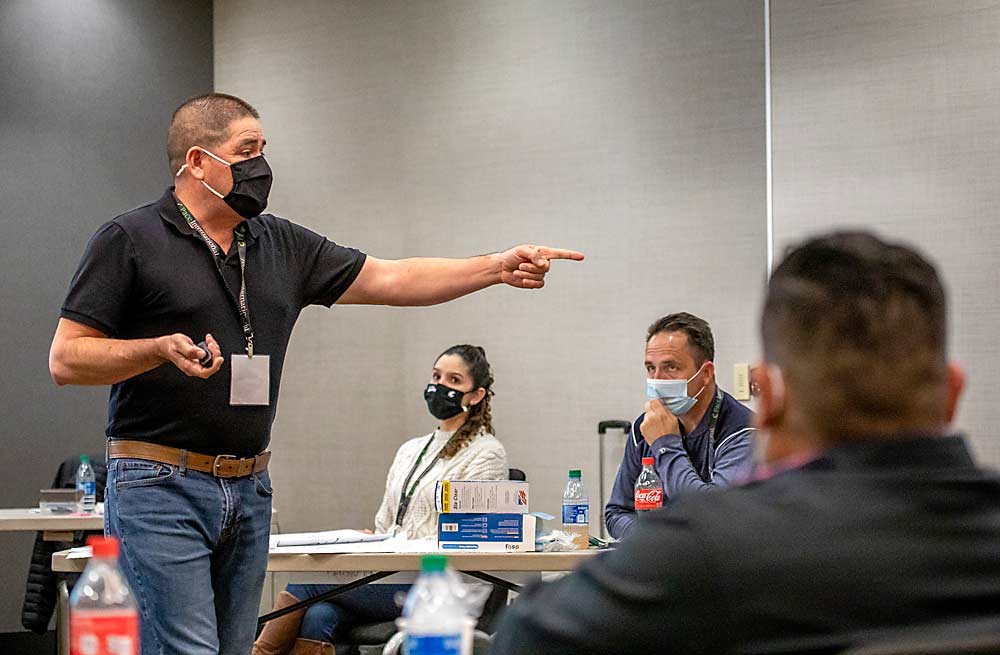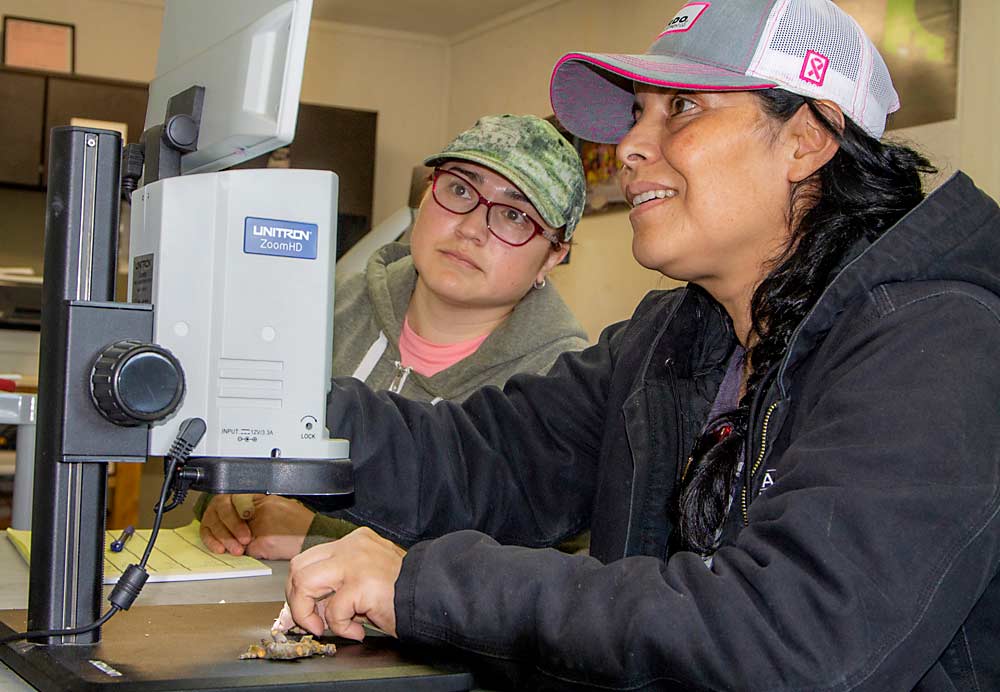
A decade ago, while conducting inspections for the Washington State Department of Agriculture, pesticide program manager Ofelio Borges noticed that many farm supervisors needed additional training and education to better do their jobs.
Borges’ 33 years in the tree fruit industry, spent not just with the state but at fruit companies over the years, have given him the experience to know what skills make for great managers. But he often sees that managers who have been promoted up the ranks lack the expertise to oversee other workers. Often, they fail to fully comprehend how their new roles contribute to the financial health of their respective companies.
“As a farmworker, you know how to use your hands, your ideas, your own resources. When you work as a supervisor for someone else, it’s a totally different game,” he said. “However, you’re a good worker, you’re an efficient employee, (your company) believes you’ll do well, and they just let you loose.”
What started as a glimmer of an idea a decade ago is now coming to fruition to address that training gap with the advent of the Agricultural Leadership Program, offered in partnership by the Washington State Tree Fruit Association, Washington State University and WSDA. The comprehensive program is designed to provide industry supervisors the knowledge and tools to effectively manage resources, safety and regulations.
Organizers are conducting the first pilot courses in English and Spanish for the tree fruit industry, with handpicked participants who will help to design the curriculum and content for future programs. The first courses open to industry applicants are tentatively planned for March.
It’s planned as an interactive course, with collaboration among trainers and participants and exercises and support throughout the 12-month program, said Jacqui Gordon Nuñez, director of training, education and member services for WSTFA. Some courses within the program are mandatory for all participants, while others can be selected to match a participant’s role and needs.
One foundational course covers some basics of the industry — understanding soils and nutrition, integrated pest management and food safety. There also will be in-depth sessions covering human resources topics, including professional communication, labor laws, recruiting and hiring, coaching and handling conflict, as well as economics and safety.
The Spanish pilot program launched in November over three days, but organizers had already realized they may need additional time to cover these topics and others that arise, Gordon Nuñez said. The English pilot program began in December.
Participants then must complete another 24 hours of elective courses, Gordon Nuñez said, depending on their areas of focus. Examples include a 16-hour train-the-trainer course on pesticide safety, an eight-hour train-the-trainer food safety course offered by the Produce Safety Alliance, a weeklong human resources boot camp by the Washington Farm Bureau, or one of WSU’s fruit schools. Pilot participants and trainers also could make other suggestions, she said.
Participant perspective
Maria Hernandez is the first woman to take part in the Spanish pilot program. Since becoming Washington Fruit and Produce Co.’s first woman farm manager in December 2018, she’s had crews and supervisors who have trusted her in her role and treated her with respect.
But in her 18 years working in the fruit industry, Hernandez has also experienced pushback from other workers. Some men believed women belong at home. When she was a crew leader, some women didn’t want to take orders from another woman.
“It can make for a more difficult team dynamic,” she said several weeks before the training. “Right now, with the team that I have and the way I manage our team, we are just that — a team. We all work together, work with each other, and I learn not to take anything personally. Let’s just get to know each other.”

The day Good Fruit Grower visited her at the company’s orchards near Othello, Washington, in October, Hernandez was training new office employees on the ranch to inspect buds and handle paperwork. She said she was looking forward to gaining additional skills through the program.
“We can always gain more experience and more knowledge and tools to have a better team, to do things a better way and to learn to delegate,” she said.
Curtis Wilkinson, her supervisor who has been at Washington Fruit for 15 years, said Hernandez has been the office lead for so long, it makes sense for her to train those coming in to take over those tasks.
“It’s fun to see her development and growth,” he said. “I had a hard time delegating things, so I know what she’s feeling with training someone else. Maria will do a good job. She just wants to do the right thing, and that’s hard to find in people.”
He also praised the idea of a train-the-trainer program for the industry. “We need it,” he said.
Weeks later, following the initial course, Hernandez couldn’t stop raving about how much she liked the program.
“We were nonstop talking. Everyone was sharing their stories and experiences in different areas — safety, administrative issues, orchard work,” she said. “Everybody had something to contribute.”
She’s already recounted one particular message to her team: Leading by example is not a way of leading, it’s the only way. “If I don’t do it, remind me. I need to set an example at every level,” she said.
In the meantime, Hernandez is looking forward to the continued program over the next year. “I don’t want to stay in the same place. I always want to grow and move forward, and they’re giving me a lot of information and resources to do that.”
—by Shannon Dininny






Leave A Comment